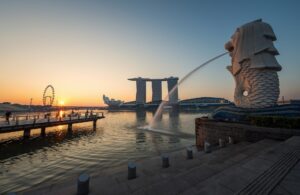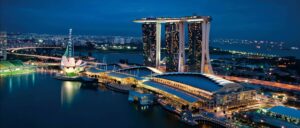
Singapore stands out as a beacon for professionals across the spectrum – from high-tier executives to skilled laborers from abroad. The city-state’s welcoming approach to foreign talent is manifested through two primary channels: the Employment Pass (EP) and the Work Permit (WP). While often lumped together under the term “work permit,” these visas cater to distinctly different groups, offering varied benefits and imposing unique restrictions.
Understanding the Basics
Common Ground: Both the EP and WP can be issued for up to two years, subject to renewal, with holders required to contribute to Singapore’s income tax pool. This commonality underscores Singapore’s fair treatment of all working professionals, regardless of their role or origin.
Distinguishing the Employment Pass
- Who It’s For: Tailored for the crème de la crème of overseas talent – including professionals, managers, and executives (PMEs) – the EP facilitates those aiming to elevate their careers or kickstart new ventures in Singapore. The nation’s arms are wide open for foreign expertise, particularly in burgeoning sectors, albeit with a checklist of stringent criteria to ensure these talents are of a caliber rare on the local job market.
- Salary and Education: A gateway for the well-paid and highly educated, the EP sets a minimum salary threshold of SGD 3,600 for newcomers, with a nod to Malaysians who can qualify under slightly different conditions. This stratification ensures that only those who can significantly contribute to Singapore’s economy and society make the cut.
The Work Permit: A Closer Look
- Who It’s For: The WP paves the way for semi-skilled laborers from specific approved countries, filling essential roles in construction, manufacturing, and other pivotal industries. The focus here is on practicality rather than skill showcase, with eligibility largely hinging on the employer’s compliance with regulatory standards.
- Salary and Nationality: Unlike the EP, the WP does not stipulate a minimum salary, reflecting its aim to attract a different tier of manpower. Nationality plays a pivotal role, with the permit available only to workers from select Asian countries, granting Malaysians additional flexibility in employment transitions.
Quotas, Levies, and Opportunities
- EP Flexibility: EP holders enjoy a degree of freedom in job mobility not afforded to WP holders, with the ability to change employers without jeopardizing their visa status. This flexibility underscores Singapore’s desire to retain top talent within its borders.
- WP Restrictions: Subject to quotas and levies, WP holders navigate a more regulated environment, with employers bearing a significant part of the compliance burden. This system ensures that the influx of foreign workers is balanced with local employment needs.
Bringing Families and Exploring Permanent Residency
- EP Advantages: EP holders stand a better chance at integrating their personal lives with their professional aspirations in Singapore. From bringing over family members to exploring paths to permanent residency, the EP offers a holistic approach to life in Singapore.
- WP Limitations: In contrast, WP holders face restrictions on family integration and long-term settlement, reflecting the temporary nature of their employment in Singapore.
Navigating Singapore’s Employment Landscape
For foreign executives and workers eyeing Singapore as their next professional playground, understanding the nuances between the EP and WP is crucial. While both visas serve as conduits to Singapore’s dynamic job market, they cater to distinct demographics with specific needs and contributions.
Ready to Start Your Singapore Journey?
Whether you’re a seasoned executive or a skilled worker, navigating the complexities of Singapore’s employment visas requires expertise. Visa Express is here to guide you through every step of the process, ensuring a smooth transition to your new role in Singapore. Contact us today to embark on your Singapore adventure with confidence.



